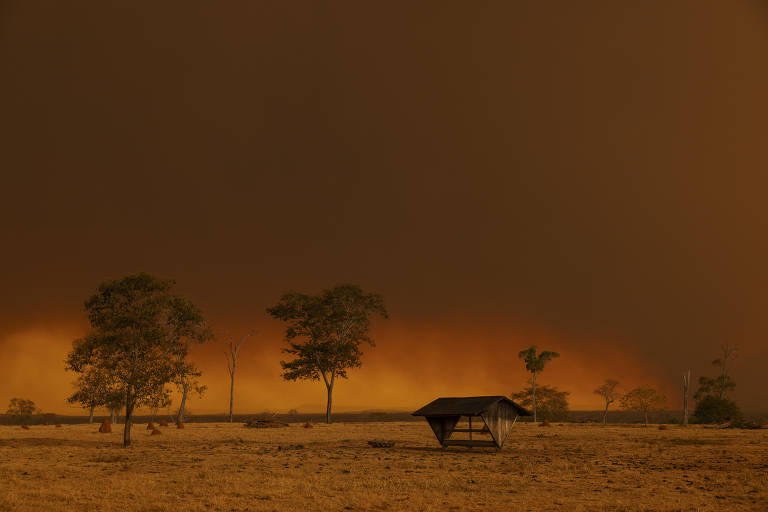Climate change has worsened the conditions of drought, heat, and wind in the Pantanal by 40%, leading to the record-breaking wildfires ravaging the biome this year, according to a study released this Thursday (8th).
The research, conducted by the international network of scientists WWA (World Weather Attribution), also concluded that climate changes caused by human activities have increased the chances of catastrophic fires in the Pantanal in June— the month used for the analysis— by four to five times.
Folha was in Corumbá (MS) in June while the city was preparing to celebrate the June festivals, surrounded by fire and smoke. A video of the Arraial do Banho de São João celebration with flames burning the vegetation in the background went viral at the time.
According to Filippe Lemos Maia Santos, a Brazilian scientist who participated in the study, massive fires are becoming the new reality for the biome. The flooded area, a characteristic of the region, is decreasing, he says, as temperatures rise, making the vegetation drier and more flammable.
"The fire season in the Pantanal usually occurs between July and November and is often associated with human ignitions. According to our studies, only 1% of wildfires are associated with lightning," emphasizes Santos, who is a researcher at the University of Évora (Portugal) and a collaborator at UFRJ (Federal University of Rio de Janeiro). To curb the effects of climate change, scientists highlight the urgency of replacing fossil fuels with clean energy, reducing deforestation, and reinforcing bans on controlled burns during critical periods to prevent the spread of flames that affect indigenous communities and farmers.
